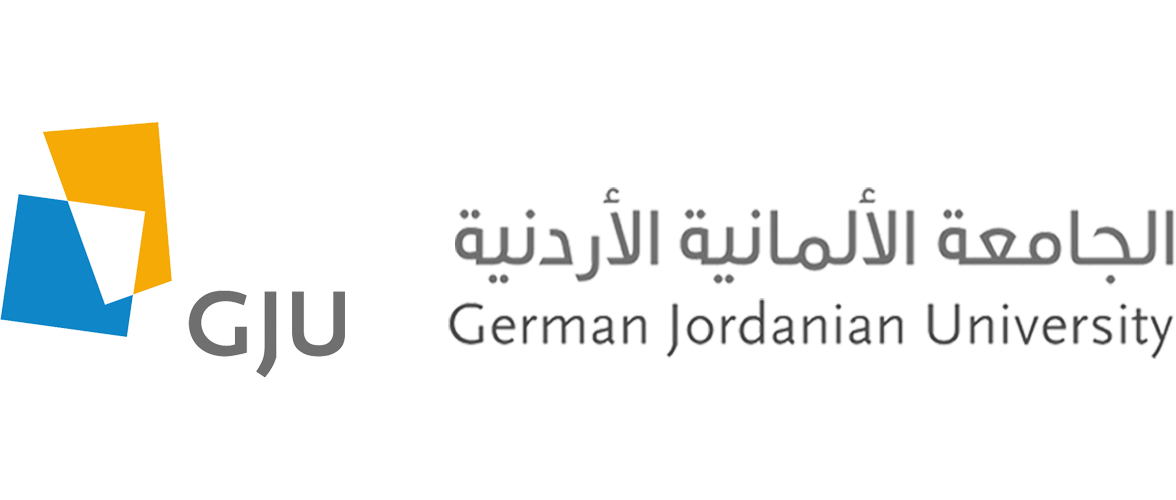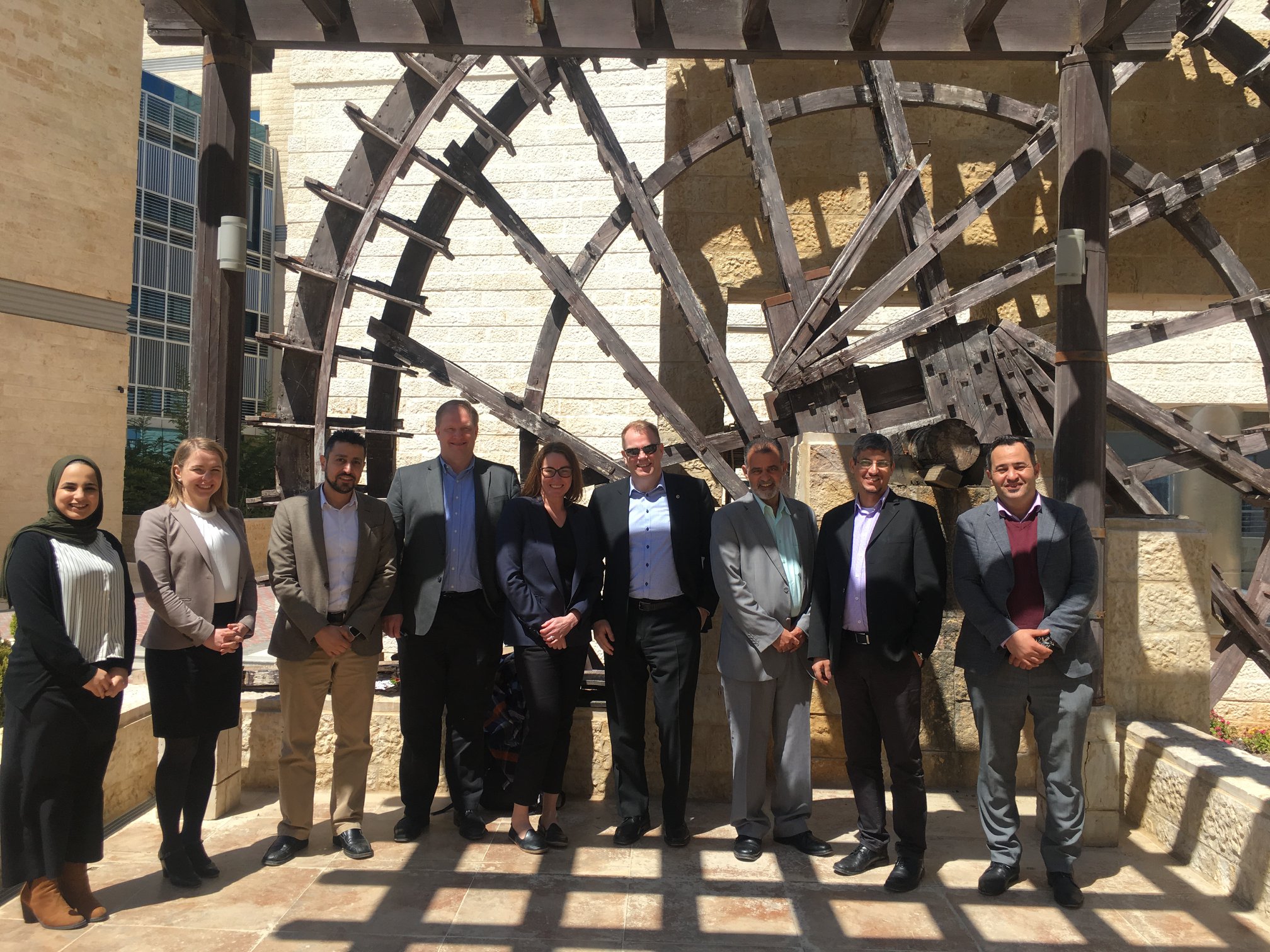 On Tuesday, April 2, 2019, A delegation from University of Reykjavik in Iceland visits German Jordanian University (GJU) to discuss and expand scientific cooperation and coordination in various scientific, academic and administrative fields.
On Tuesday, April 2, 2019, A delegation from University of Reykjavik in Iceland visits German Jordanian University (GJU) to discuss and expand scientific cooperation and coordination in various scientific, academic and administrative fields.
During the visit, the delegation met the President of GJU Prof. Manar Fayyad, and the Vice Presidents, Prof. Atef Kharabsheh and Coordinator of the Syrian-Jordanian Education Program (EDU-SYRIA) Dr. Dhiah Abou-Tair.
During the meeting, Fayyad presented an overview of the university and the majors, noting that it was built in the same way as the German universities in Applied Sciences.
She added that the university system is based on sending students in the penultimate year to Germany for one year to study at one of the German university partner, as well as getting training opportunities in German companies or factories.
The two parties talked about the EDU-Syria Program which is funded by the European Union Regional Trust Fund in Response to the Syrian Crisis (the 'Madad Fund) and the German Jordanian University, which aims to introduce the international community to the challenges faced the Syrian students refugees in Jordan and disadvantaged Jordanian students in higher education such as the number of scholarships.
In this regard, Fayyad said that the university seeks to attract more refugee and non-refugee students from around the world in order to provide them with the appropriate education and to exchange experiences, knowledge and cultures among them, thus contributing to let the academic and industrial institutions in other countries know more about GJU.
The President of the University of Reykjavik, Dr. Ari Jonsson, expressed his happiness with his visit to Jordan and GJU, praising the achievements made by the University since its establishment and the level of its graduates. He also stressed the importance of student cultural exchange, which aims to improve students' skills and gain more scientific and practical experience.
The visit included a meeting with International Office (IO) at the University, School of Applied Humanities and Languages (SAHL), School of Electrical Engineering and Information Technology (SEEIT) and School of Natural Resources Engineering and Management (SNREM).
The University of Reykjavik is the largest private university in Iceland. It offers Bachelor's and Master's degrees in several fields such as Science, Engineering, Computer Science and law.



